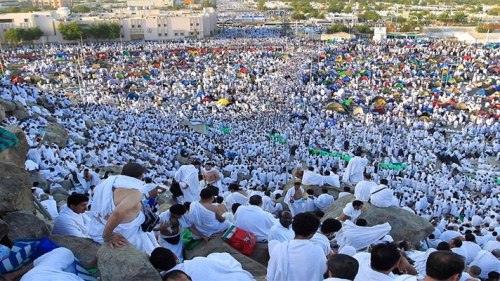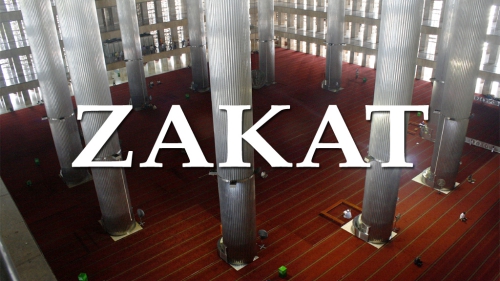Ramadan and Fasting

Why is the month of Ramadan so special in Islam?
This is the month in which the Prophet (PBUH) and his companions fought for their own survival, and more importantly for the survival of Islam. The future of Islam was at stake in the first Ramadan of the first Hijra (Hegira) on the battlefield of Badr.
This is also the month in which the Prophet (PBUH) and his companions re-entered Mecca as victors after eight years of refuge in Medina where they faced one military attack after another from the Kuffar and the Mushrikun (unbelievers and idol worshippers) of Mecca and their allies.
This is the month in which the Ultimate Book of Allah began to be revealed to Prophet Muhammad (PBUH); this is the month of the Night of Power (Laila-tul-Qadr), which is better than a thousand months (97:1-3).
This is the month for learning self-restraint and for purifying souls. This is the month for prayer and fasting. This is the month for glorifying Allah. This is the month for being grateful to Allah for everything but especially for sending His guidance, the Qur’an, to humanity.
It is obligatory on Muslims to fast (with certain exceptions) in this month from dawn to dusk without any food or drink or material pleasure.
The Qur’an says:
O ye who believe! Fasting is prescribed to you as it was prescribed to those before you, that ye may (learn) self-restraint. (2:183)
Ramadan is the (month) in which was sent down the Qur'an, as a guide to mankind, also clear (Signs) for guidance and judgment (Between right and wrong). So every one of you who is present (at his home) during that month should spend it in fasting, but if any one is ill, or on a journey, the prescribed period (should be made up) by days later. God intends every facility for you; He does not want to put you to difficulties. (He wants you) to complete the prescribed period, and to glorify Him in that He has guided you; and perchance ye shall be grateful. (2:185)
Before reflecting on these verses let us make this observation about the Qur’an: whenever it gives a command, it also gives the wisdom behind it to explain the aims and objectives of that command, and highlight its outcome. For example, we find in many places in the Qur’an:
“Allah hath sent down to thee the Book and Wisdom…” (4:113)
Since Allah has sent down His Wisdom and since the Qur’an is the only preserved Book extant in its original unaltered condition, it behooves us to look for Allah’s wisdom in the Qur’an and not elsewhere. We need Allah’s wisdom to enrich our own wisdom in order to understand and appreciate the meaning of His Book.
Three results of fasting in Ramadan have been mentioned above in verse (2:183 and 2:185) Taqwaa: learn self-restraint, 2) Takbir: glorify or extol Allah, and 3) Shukra: being grateful.
Learning self-restraint and being grateful for what Allah has given us build our character. However, how should we glorify, extol, or magnify Allah in Ramadan? By reciting Takbir and spending extra time doing dhikr (remembering Allah)? Or, does glorifying Allah mean more than that?
The Arabic word Tukabbiru. Kibriyaao (root k-b-r) means authority or sovereignty. Keeping this meaning in mind, the second purpose of fasting, therefore, is to become able to establish the sovereignty or authority of Allah in this world and thus glorify or extol Him. It is evident from many other verses of the Qur’an that this is the real meaning of the Takbir of Allah. For example, when Moses and Aaron (PBUT) went to Pharaoh to deliver the message of God, the people of Pharaoh said:
“Hast thou come to turn us away from what we found our forefathers believing in and doing, so that the two of you might become supreme (kibriyao) in this land?” (10:78)
The meaning of Takbir is also clear from the following verses:
“To Him be glory (kibriyaa, i.e., authority) throughout the heavens and the earth: and He is Exalted in Power, Full of Wisdom!” (45:37)
“It is He Who is ilaha (authority) in heaven and ilaha (authority) on earth; and He is full of Wisdom and Knowledge.” (43:84)
As for the heaven or the external Universe, Allah has established His authority (kibriyaa) in the form of law of nature directly. No one can argue with that. For example, no one has the freedom to accept or reject (Allah’s) law of gravity in the natural world. But everyone is free to accept or reject Allah’s law in the human world, i.e. “His authority on Earth” in the above verse.
It is Allah’s intention (Mashiyya) that His authority or law (kibriyaa) in the human world (i.e., on Earth) be established by human beings based on their own freewill. Otherwise, if Allah were to establish His authority in the human world directly as He has done in the natural world then that would take away human freewill; and without freewill human beings cannot be held accountable for their actions – effectively turning them into animals. The whole purpose of creation is, therefore, to see how human beings use their freewill.
Therefore, Allah sent down His commands (or laws) through messengers and granted human beings full freedom to either accept and govern (judge) according to them and thus establish Allah’s authority (kibriyaa) in the human world. Alternatively, to reject and govern (and judge) according to their own laws and thus accept the authority (kibriyaa) of human beings instead of Allah – all based on their own freewill.
The first would be an act of Tauhid or unity (i.e., accepting Allah’s Sovereignty both over external Universe as well as in human world) and the second one would be an act of Kufr, i.e., rejecting Allah’s Sovereignty in human world (which essentially amounts to rejection of the Qur’an that came to guide Al-Naas or humankind.):
“And whosoever does not judge by what Allâh has revealed, such are the Kâfirûn (i.e. disbelievers - of a lesser degree as they do not act on Allâh's Laws).” (5:44)
The above point is also clear from the following verses where Allah categorically states that He accepts no partners in His Sovereignty, as that would be Shirk:
“And say: Praise be to Allah, Who hath not taken unto Himself a son, and Who hath no partner in the Sovereignty, nor hath He any protecting friend through dependence. And magnify Him with all magnificence [kabbirhu takbira].” (17:111)
“(It is said unto them): This is (your plight) because, when Allah only was invoked, ye disbelieved, but when some partner was ascribed to Him ye were believing. But the command belongeth only to Allah, the Sublime, the Majestic [‘Ali-ul-kabir].” (40:12)
If it was just a matter of reciting Allah’s Takbir before (and during) every prayer—and few extra Takbirs during Eid prayer—to proclaim Allah’s Sovereignty and Greatness, then why would the Kuffar (the unbelievers) and Mushrikun (idol worshippers) of Mecca be so opposed to our Prophet (PBUH) and his companions that they went to the extent of torturing and killing them? Would the enemies of Islam have sacrificed their life and wealth to oppose and fight the Prophet (PBUH) and his companions, if glorifying Allah was limited to reciting a few extra Takbirs in the holy month of Ramadan? Was glorifying Allah nothing to do with their political, social, and economic system which was based on injustice and exploitation and which they felt was being threatened by these chants of Allahu Akbar from the Muslims?
Today, too, no one objects if we wish to recite as many Takbirs as we want during our prayers, workshops and Islamic conventions. As long as Allah’s Takbir (authority) does not question those in authority, we can keep on reciting it. In fact, for most of us, appeasing authority has become our second nature.
As a result, our Takbir has mostly turned into a mere formality that does nothing to contribute to establishing Allah’s glory in the human world. Does Allah really need our Takbir recitations? Is He not great or glorious by Himself?
The reality is that as weak and perpetually dependent as we are, we cannot establish our own glory and dignity, let alone establishing Allah’s glory in the human world. Consequently, our Takbir has become nothing more than empty words.
Millions of Muslims throughout the world continue to be killed, raped, tortured, humiliated, persecuted and dehumanized. The way things are developing right now, are we that far from the period of Jaahiliyya (ignorance) that existed in the world before the time of the Prophet (PBUH)? How can that represent Allah’s greatness?
The fact is Allah’s greatness (Takbir) must ultimately be reflected in His followers’ greatness since He guarantees that disbelievers will never be able to dominate the believers and that, eventually, victory will come to true believers (as indeed it came to the Prophet (PBUH) and his companions in spite of scarcity of resources and their meager numbers):
“And never will Allâh grant to the disbelievers a way (to triumph) over the believers.” (4:141)
“So do not become weak (against your enemy), nor be sad, and you will be superior (in victory) if you are indeed (true) believers.” (3:139)
But this victory is not going to come easily just as it didn’t come easily to the Prophet (PBUH) and his companions. Also, it will come only if we become true believers.
That is why Ramadan was meant to be a month of fasting and introspection and soul searching and remembering Allah with passion and intensity reminiscent of the companions of the Prophet (PBUH). It was supposed to be an occasion for believers to go through a yearly, month long intensive training exercise of hardship and self-restraint and of spiritual purification and commitment to Allah and to learn physical and mental discipline and patience essential to Islam so that they would be able not only to proclaim but also to establish the greatness and sovereignty of Allah in the world by facing bravely any challenges that might come their way.
That is how the Prophet (PBUH) and his companions and the rightly guided Khalifas practiced Ramadan. And the results speak for themselves.

















